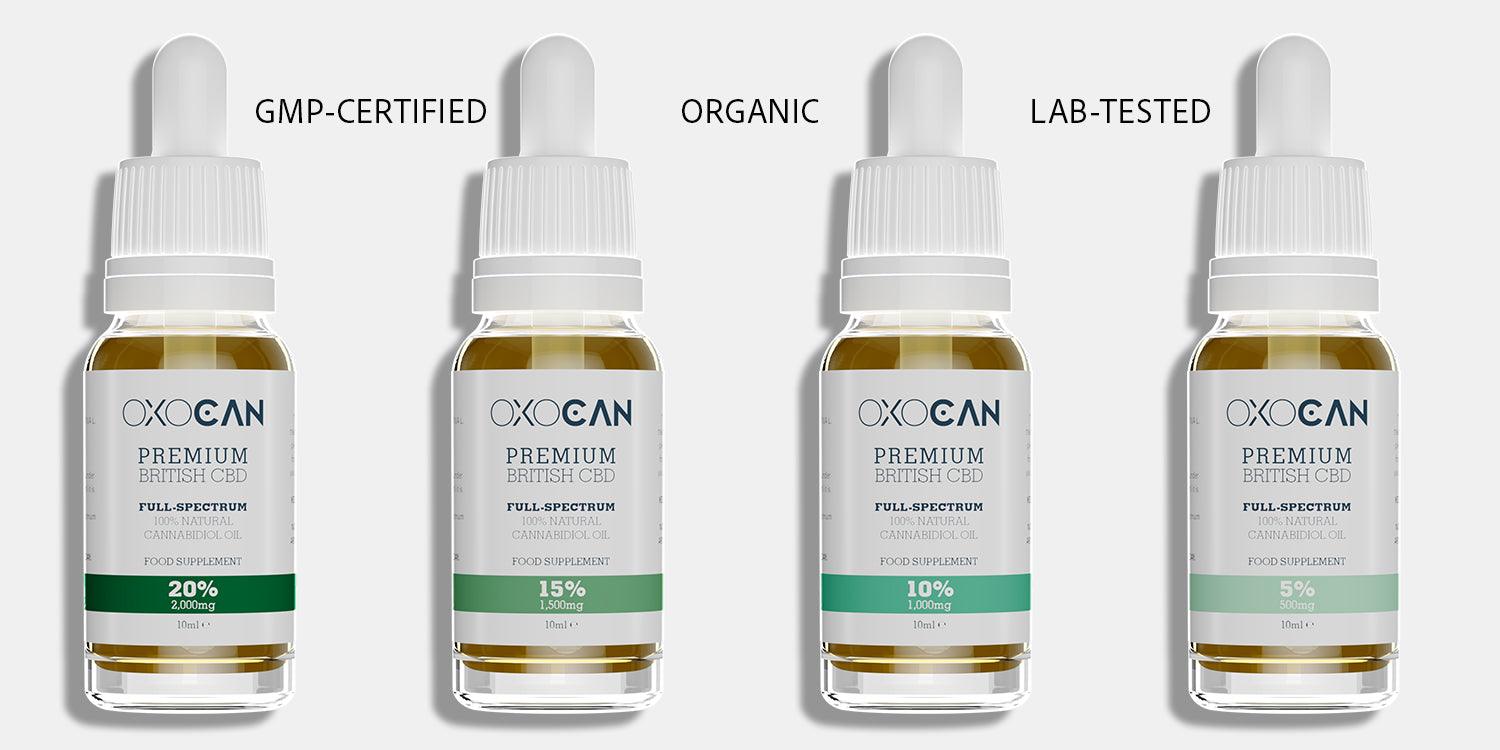
Can CBD Lower Blood Pressure?
Can CBD Lower Blood Pressure?
In recent years, Cannabidiol (CBD) has gained traction as a natural remedy for various health issues, including anxiety, chronic pain, and epilepsy. Among its potential benefits, CBD's role in managing blood pressure has garnered significant attention and research. High blood pressure, or hypertension, is a prevalent condition that can lead to severe health problems if left untreated. This blog explores the science behind CBD and its effects on blood pressure, examining whether CBD can lower blood pressure, the mechanisms involved, and the implications for individuals with hypertension.
Understanding Blood Pressure and Hypertension
Blood pressure measures the force exerted by circulating blood on the walls of blood vessels. It is recorded in millimetres of mercury (mmHg) as two numbers: systolic pressure (pressure when the heart beats) over diastolic pressure (pressure when the heart is at rest). Normal blood pressure is typically around 120/80 mmHg, while hypertension is diagnosed when blood pressure consistently exceeds 140/90 mmHg.
Hypertension is a significant risk factor for cardiovascular diseases, including heart attack, stroke, and heart failure. According to the World Health Organization (WHO), approximately 1.13 billion people globally suffer from hypertension, with fewer than 20% having it under control. Often termed the "silent killer," hypertension usually has no symptoms until substantial damage occurs. Managing blood pressure is vital for reducing the risk of serious health issues.
The Role of the Endocannabinoid System (ECS)
Understanding how CBD might influence blood pressure requires exploring the endocannabinoid system (ECS). The ECS is a complex cell-signalling system that regulates various physiological processes, including mood, appetite, pain sensation, and immune response. The ECS consists of three main components:
- Endocannabinoids: Naturally occurring compounds in the body that bind to cannabinoid receptors.
- Cannabinoid Receptors: Two main types of receptors, CB1 and CB2, are found throughout the body. CB1 receptors are primarily in the brain and central nervous system, while CB2 receptors are mainly in the immune system and peripheral tissues.
- Enzymes: Responsible for synthesising and breaking down endocannabinoids.
CBD interacts with the ECS, but unlike tetrahydrocannabinol (THC), it does not bind directly to cannabinoid receptors. Instead, it influences the system indirectly by inhibiting the breakdown of endocannabinoids and modulating receptor activity.
How CBD May Affect Blood Pressure
Several mechanisms may explain how CBD could lower blood pressure:
- Vasodilation: CBD has vasodilatory effects, meaning it can relax blood vessels, allowing blood to flow more easily. This can help reduce the resistance against which the heart works, thereby lowering blood pressure.
- Stress and Anxiety Reduction: Stress and anxiety contribute to high blood pressure. CBD has been extensively studied for its anxiety-reducing (anxiolytic) properties. By lowering stress and anxiety levels, CBD may indirectly help reduce blood pressure.
- Anti-inflammatory and Antioxidant Effects: Chronic inflammation and oxidative stress are linked to hypertension. CBD possesses both anti-inflammatory and antioxidant properties, which may help protect blood vessels from damage and reduce hypertension.
- Pain Management: Chronic pain can lead to increased blood pressure. Effectively managing pain with CBD might help lower blood pressure.
Scientific Evidence on CBD and Blood Pressure
While anecdotal evidence and preliminary studies suggest that CBD might benefit blood pressure, scientific research is essential to fully understand its efficacy and safety.
Human Studies
- Study on Healthy Volunteers: A notable study conducted in 2017 examined the effects of CBD on blood pressure in healthy volunteers. The study found that a single dose of 600 mg of CBD reduced resting blood pressure and the blood pressure response to stress. The researchers proposed that the reduction in blood pressure could be attributed to CBD’s anxiety-reducing and pain-relieving effects (source).
- Chronic Use and Long-term Effects: Research on the long-term effects of CBD on blood pressure is limited. Most studies focus on short-term use and immediate impact. Extensive clinical trials are necessary to determine the long-term efficacy and safety of chronic CBD use for hypertension.
Animal Studies
Animal studies offer valuable insights into the potential mechanisms through which CBD may affect blood pressure:
- Vasodilatory Effects: Studies on rats have demonstrated that CBD induces vasodilation and lowers blood pressure. This effect was linked to CBD’s interaction with CB1 receptors and serotonin receptors.
- Stress-induced Hypertension: In animal models of stress-induced hypertension, CBD was found to lower blood pressure by modulating the stress response and reducing anxiety levels.
Potential Benefits for Hypertension Patients
For individuals with hypertension, CBD's potential benefits extend beyond blood pressure reduction. Additional advantages include:
- Improved Quality of Life: By reducing anxiety, pain, and inflammation, CBD can enhance the overall quality of life for hypertensive patients.
- Reduced Dependence on Medications: Some individuals prefer natural remedies over pharmaceutical drugs due to concerns about side effects and long-term use. CBD may offer a complementary or alternative option for managing hypertension.
- Holistic Health Approach: CBD’s multifaceted effects on the ECS can promote overall health and well-being, addressing various factors contributing to hypertension.
Safety and Side Effects
While CBD is generally considered safe, potential side effects and interactions with other medications must be considered. Common side effects of CBD include:
- Dry Mouth: CBD can reduce saliva production, leading to dry mouth.
- Dizziness: Some individuals may experience dizziness or lightheadedness, especially at higher doses.
- Gastrointestinal Issues: CBD can cause nausea, diarrhoea, or changes in appetite in some people.
- Interactions with Medications: CBD can interact with certain medications, including blood thinners and drugs metabolised by the liver's cytochrome P450 enzyme system. It is crucial to consult with a healthcare provider before starting CBD, especially if taking other medications (source).
Dosage and Administration
Determining the appropriate dosage of CBD for blood pressure management can be challenging, as it varies based on individual factors such as weight, metabolism, and the severity of hypertension. General guidelines include:
- Start Low and Go Slow: Begin with a low dose of CBD and gradually increase it until achieving the desired effects. This approach helps minimise the risk of side effects.
- Monitor Blood Pressure: Regularly monitor blood pressure to track any changes and adjust the dosage accordingly.
- Consult a Healthcare Provider: Work with a healthcare provider to determine the optimal dosage and ensure it does not interfere with the current treatment plan.
Legal and Regulatory Considerations
The legal status of CBD varies by country and region. In the United Kingdom, for example, CBD products are legal as long as they contain less than 0.2% THC and are marketed as food supplements. However, the regulatory landscape is continually evolving, making it essential to stay informed about the latest regulations and guidelines (source).
Future Research and Implications
The potential of CBD to lower blood pressure is a promising area of research, but many questions remain unanswered. Future studies should focus on:
- Long-term Effects: Understanding the long-term safety and efficacy of CBD for hypertension is crucial.
- Optimal Dosage and Delivery Methods: Research is needed to determine the most effective dosage and delivery methods for managing blood pressure.
- Mechanisms of Action: Further studies should explore the specific mechanisms through which CBD affects blood pressure and the ECS.
- Clinical Trials: Large-scale, randomised controlled trials are necessary to provide robust evidence of CBD’s efficacy in managing hypertension.
Current research suggests that CBD helps lower blood pressure through mechanisms like vasodilation, stress reduction, and anti-inflammatory effects. While preliminary studies and anecdotal evidence are promising, more extensive clinical trials are needed to confirm these findings and determine the safety and efficacy of hypertension.
Individuals considering CBD as part of their hypertension management plan should consult with a healthcare provider and approach CBD use with caution. As with any supplement or medication, individual responses can vary, making it essential to monitor health and adjust dosage as needed.
CBD shows promise as a natural remedy for lowering blood pressure but should be viewed as a complementary approach rather than a standalone treatment. Integrating CBD with lifestyle changes, such as a healthy diet, regular exercise, and stress management, can provide a holistic approach to managing hypertension and promoting overall cardiovascular health. As research continues, we can look forward to gaining a deeper understanding of how CBD can play a role in improving heart health and well-being.


